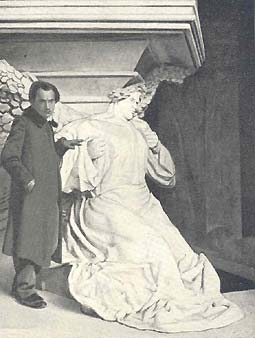| |
|
 |
| |
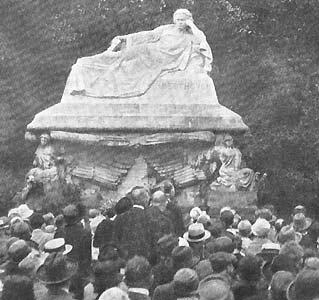 the Beethoven Monument as it could be seen in 1927... |
At the start of the XXth century, a Committee for Beethoven Monument was set up.It's objective was the realisation of a monument in honour of Beethoven in the centre of Paris. A decree by the President of the Republic, dated December 20th 1909, oversaw it's installation at Ranelagh, Paris. But administrative complications deprived the capital of this monument which was instead erected at Vincennes, on the lawn at Fontenay. |
|
Beethoven should have been depicted lying down, half dressed, thoughtful and creative... But José de Charmoy went to war in 1914, before finishing the monument. The base was entirely finished, but not the statue. The sculptor died at war and the sculpture has never been finished. The plaster model was exposed on it's base for a certain time, but it was too fragile and broke in time into pieces. |
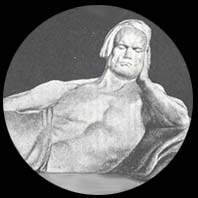 The statue realised for the Beethoven Monument by José de Charmoy between 1909 and 1911... |
|
There rests then, nothing but this immense base (see photos below...), of an approximate size of 6 metres long, 4 metres deep and 3 metres high. Four winged seraphs hold up the missing monument, the composer who should have been glorified. The four seraphs represent the Symphony 'Eroica', the Sonata 'Pathetique', the Ninth Symphony, and the 'Moonlight' Sonata. Access to this monument is strictly by foot, because the route is not open to vehicles. |
| |
| |
| Click on the boxes to see my photos enlarged... | ||
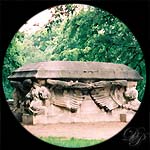 |
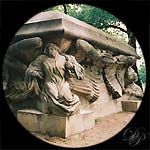 |
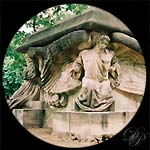 |
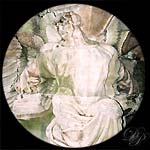 |
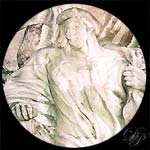 |
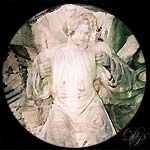 |
|
Drawing of José de Charmoy next to the base of the Beethoven Monument. Drawing appeared in Musica n°32 dated May 1905... |
This article
is published with the authorisation of the and the
Office municipal de l'Information et des Relations
publiques. Thanks also
to Jacques and to Ton'Ton Martial |
| Many
thanks to Hannah SALTER for her translation
of this page from French into English © 2001 - 2013 |
|
||||||||||||||||

